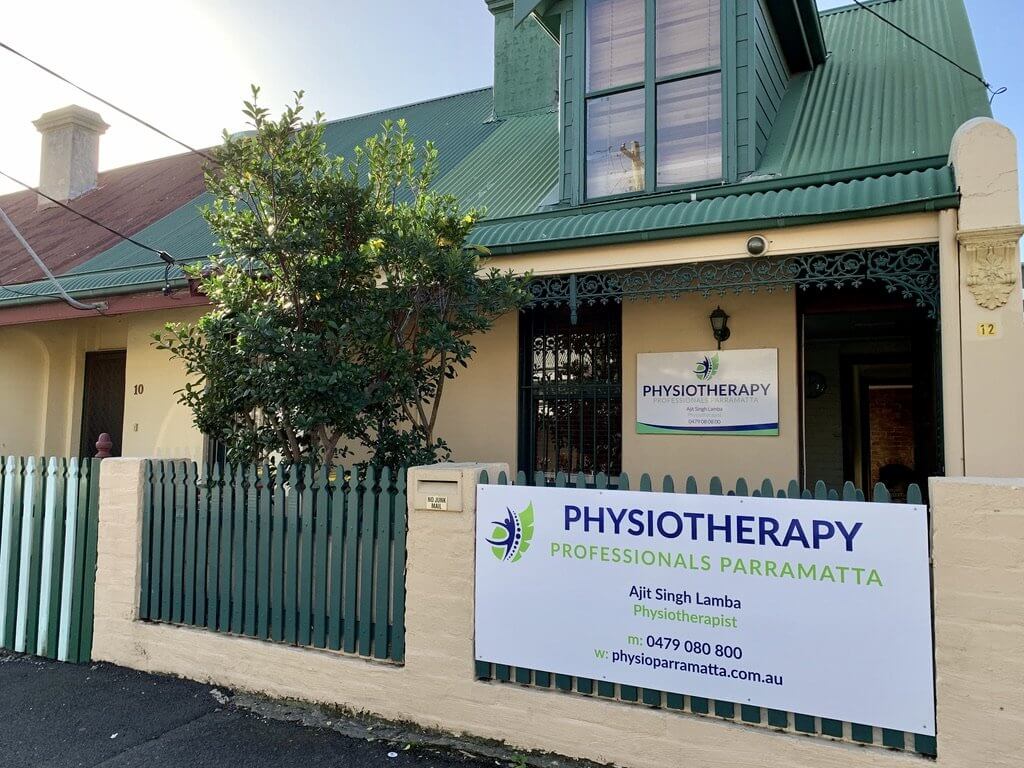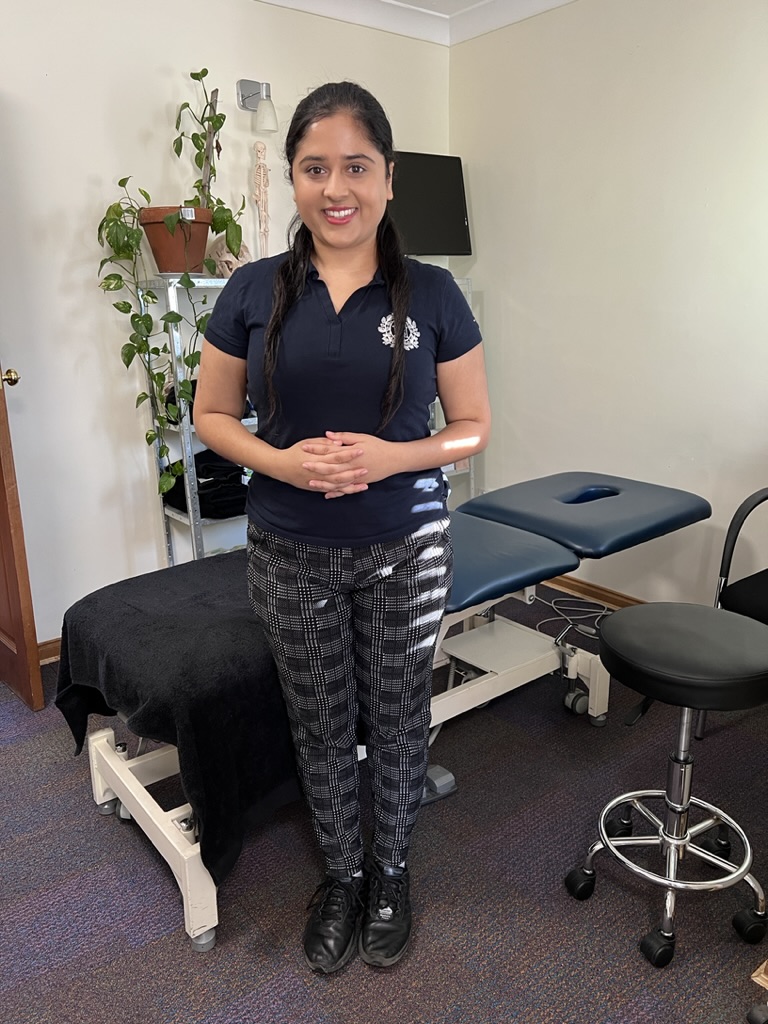Womens Health Physiotherapy

Women’s Health Physiotherapy with Jespriya Chand – Female Physiotherapist
Women’s health Physiotherapy, also known as pelvic health physiotherapy or pelvic floor physiotherapy, is a specialized area of physiotherapy that focuses on addressing the unique needs and conditions related to the female pelvic region. It encompasses the assessment and treatment of various conditions that can affect women throughout their lifespan, including pregnancy, postpartum, menopause, and beyond.
Common Women’s Health Conditions:
- Pelvic floor dysfunction: Women’s health physiotherapists are experts in assessing and treating pelvic floor muscle dysfunction. This can include conditions such as pelvic pain, urinary incontinence, fecal incontinence, pelvic organ prolapse, and pelvic floor muscle weakness or tightness.
- Pre- and postnatal care: Women’s health physiotherapy provides support and guidance during pregnancy and after childbirth. Physiotherapists can address issues like pregnancy-related pelvic girdle pain, diastasis recti (abdominal separation), back pain, and help women regain strength and function in the postpartum period.
- Bladder and bowel dysfunction: Physiotherapy can assist in managing urinary and fecal incontinence, urgency, frequency, and difficulties with emptying the bladder or bowels. Treatment may involve bladder and bowel retraining, pelvic floor muscle exercises, and lifestyle modifications.
- Pelvic pain: Women’s health physiotherapy can help manage various forms of pelvic pain, including conditions like vulvodynia, dyspareunia (pain during sexual intercourse), pelvic girdle pain, or chronic pelvic pain. Treatment approaches may include manual therapy techniques, relaxation techniques, exercises, and education on pain management strategies.
- Pre- and post-gynecological surgery: Physiotherapy can be beneficial before and after gynecological surgeries such as hysterectomy, pelvic organ prolapse repair, or breast surgery. It aims to optimize recovery, manage pain, restore function, and address any potential complications or pelvic floor issues related to surgery.
- Menopause-related concerns: Women’s health physiotherapists can provide guidance and support for managing symptoms associated with menopause, including pelvic floor changes, vaginal dryness, and sexual health concerns.
Women’s health Physiotherapy involves a comprehensive assessment, including internal examinations when appropriate, to evaluate the pelvic floor muscles and related structures. Treatment typically includes a combination of exercises, manual therapy techniques, biofeedback, education, and lifestyle modifications tailored to individual needs.
Pregnancy Related Back Pain
Back pain is a common complaint during pregnancy, with approximately 50-70% of pregnant women experiencing it at some point. The causes of back pain during pregnancy can vary, but some common factors include:
- Hormonal changes: During pregnancy, hormonal changes can lead to increased joint laxity and relaxation of ligaments, including those in the lower back. This can contribute to instability and discomfort.
- Weight gain: As the pregnancy progresses, the woman’s weight increases, placing additional stress on the back and spine.
- Postural changes: The growing belly alters the center of gravity, causing changes in posture. This can lead to an increased curvature of the lower back (lordosis) and strain on the muscles and ligaments.
- Muscle imbalances: The abdominal muscles may stretch and weaken, while the back muscles may become overworked as they compensate. This muscle imbalance can contribute to back pain.
To help manage and alleviate back pain during pregnancy, consider the following strategies:
- Maintaining good posture: Pay attention to your posture, especially when sitting and standing. Use proper body mechanics, such as lifting with your legs, to avoid additional strain on your back.
- Exercise: Engage in regular physical activity approved by your healthcare provider. Prenatal exercises that focus on strengthening the core, back, and pelvic muscles can help support the spine and reduce pain. Low-impact activities like walking, swimming, and prenatal yoga can be beneficial.
- Prenatal massage: Consider seeking a prenatal massage from a licensed therapist experienced in working with pregnant women. Massage therapy can help relax tense muscles, improve circulation, and provide pain relief.
- Heat and cold therapy: Applying a heating pad or taking a warm bath can help relax muscles and alleviate pain. Cold packs or ice wrapped in a cloth can reduce inflammation and numb the area.
- Supportive footwear: Choose comfortable shoes with good arch support to help maintain proper alignment and reduce strain on the back.
- Proper lifting techniques: When lifting objects, bend your knees and keep your back straight. Avoid twisting motions while lifting.
- Maternity support belts: Some women find relief by using maternity support belts or bands that provide support to the lower back and abdomen.
It’s essential to consult with your healthcare provider or a physiotherapist specializing in prenatal care for an accurate diagnosis and personalized advice. They can provide appropriate exercises, recommend additional treatments, and address any specific concerns related to your back pain during pregnancy.
Pregnancy Related Carpal Tunnel Syndrome
Pregnancy-related carpal tunnel syndrome (CTS) is a condition that can occur during pregnancy due to hormonal and physiological changes. Carpal tunnel syndrome is characterized by compression of the median nerve as it passes through a narrow passageway called the carpal tunnel in the wrist. Pregnancy can contribute to the development or exacerbation of CTS due to the following factors:
- Fluid retention: During pregnancy, the body retains more fluid, leading to swelling and increased pressure within the carpal tunnel.
- Hormonal changes: Hormonal fluctuations, particularly an increase in estrogen, can affect the connective tissues and lead to swelling, making the carpal tunnel more susceptible to compression.
- Increased blood volume: Pregnancy causes an increase in blood volume, which can contribute to swelling and increased pressure within the carpal tunnel.
- Weight gain: The additional weight gained during pregnancy can put increased strain on the wrists and contribute to the development of carpal tunnel syndrome.
Common symptoms of pregnancy-related carpal tunnel syndrome include:
- Numbness or tingling: Typically affecting the thumb, index finger, middle finger, and part of the ring finger.
- Hand and wrist pain: Pain or discomfort may be present in the hand, wrist, or forearm.
- Weakness: A feeling of weakness or difficulty gripping objects may occur.
To manage pregnancy-related carpal tunnel syndrome, consider the following strategies:
- Wrist splints: Wearing wrist splints or braces, particularly at night, can help keep the wrist in a neutral position, relieve pressure on the median nerve, and alleviate symptoms.
- Modify activities: Avoid repetitive activities that may aggravate symptoms. Take regular breaks and try to maintain good posture during activities that involve the hands and wrists.
- Cold therapy: Applying a cold pack or ice wrapped in a cloth to the affected area can help reduce inflammation and provide temporary relief.
- Hand exercises: Gentle stretching and strengthening exercises for the hands and wrists, as recommended by a healthcare provider or physiotherapist, may help improve symptoms and maintain flexibility.
- Lifestyle modifications: Managing overall swelling and fluid retention during pregnancy through measures such as elevation of the hands and avoiding prolonged periods of standing or sitting may help reduce symptoms.
Contact Us:
Do you need assistance with your Women’s Health Physiotherapy treatment? Experienced team of Physiotherapists with essential knowledge. You can call us anytime to have a confidential discussion with our expert Physiotherapists. For more information on how we can further assist you, please call our clinic number on 0479 080 800 or send us an email on [email protected] for further details. Our Physiotherapists are Medicare, NDIS, and Work Cover approved, specialising in injury management and rehabilitation to get you back on track.
Physiotherapy After A Car Accident

